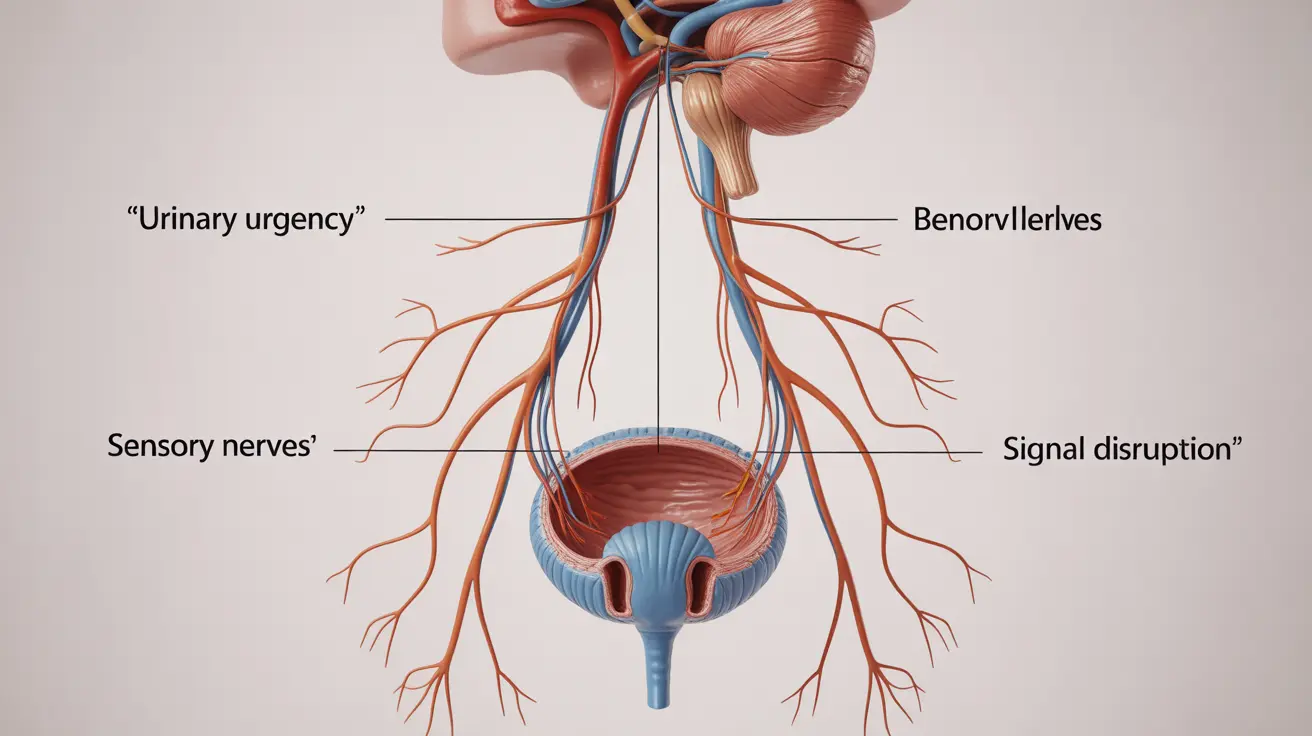Experiencing urinary urgency so severe that it affects your mobility can be both distressing and concerning. This overwhelming need to urinate might be related to various underlying conditions, including neurogenic bladder or other urological issues. Understanding the causes and available treatments can help you manage these symptoms effectively and improve your quality of life.
Understanding Severe Urinary Urgency
When you experience an urgent need to urinate that feels overwhelming and restricts your movement, it could indicate several underlying conditions. This sensation often occurs when there's a disruption in the normal communication between your bladder and brain, or when your bladder muscles contract inappropriately.
Common Causes of Extreme Urinary Urgency
Neurological Conditions
Several neurological conditions can affect bladder function and cause severe urinary urgency:
- Multiple sclerosis
- Spinal cord injuries
- Stroke
- Parkinson's disease
- Diabetic neuropathy
Other Medical Conditions
Various other conditions may contribute to severe urinary urgency:
- Urinary tract infections
- Overactive bladder syndrome
- Bladder stones
- Enlarged prostate (in men)
- Pelvic floor dysfunction
Diagnostic Process
If you're experiencing severe urinary urgency that impacts your mobility, your healthcare provider may recommend several diagnostic tests:
- Urinalysis
- Bladder function tests
- Neurological examination
- Imaging studies
- Post-void residual measurement
Treatment Options
Medical Interventions
Several treatment approaches can help manage severe urinary urgency:
- Prescription medications
- Botox injections
- Nerve stimulation therapy
- Catheterization (when necessary)
- Surgical interventions in severe cases
Lifestyle Modifications
Various lifestyle changes can help improve symptoms:
- Timed voiding schedules
- Fluid management
- Dietary modifications
- Pelvic floor exercises
- Bladder training techniques
Prevention and Self-Care
Taking proactive steps can help minimize severe urinary urgency:
- Maintaining a healthy weight
- Avoiding bladder irritants
- Regular exercise
- Proper hydration timing
- Stress management techniques
Frequently Asked Questions
Why do I feel like I have to pee so badly that I can't move, and could this be a sign of neurogenic bladder?
This intense urge to urinate that restricts movement could indeed be a sign of neurogenic bladder, particularly if it's recurring. This condition occurs when there's a disruption in nerve signals between your bladder and brain, causing sudden, severe urges to urinate. However, other conditions like overactive bladder or urinary tract infections could also cause similar symptoms.
What treatment options are available to manage sudden, urgent bladder urges caused by neurogenic bladder?
Treatment options include medications to relax bladder muscles, nerve stimulation therapy, botulinum toxin injections, and catheterization when necessary. Your healthcare provider will create a personalized treatment plan based on the severity of your symptoms and underlying causes.
How can lifestyle changes and exercises help reduce symptoms like extreme urinary urgency in neurogenic bladder?
Lifestyle modifications such as timed voiding, pelvic floor exercises, and bladder training can significantly improve symptoms. Additionally, managing fluid intake, avoiding bladder irritants, and maintaining a healthy weight can help reduce the frequency and severity of urgent episodes.
When should I see a doctor if I experience an overwhelming need to urinate that limits my movement?
Seek medical attention if you experience severe urinary urgency that affects your daily activities, especially if accompanied by pain, fever, or changes in urine color. Immediate medical care is necessary if you're unable to urinate or experience persistent symptoms that interfere with your quality of life.
What complications can arise if extreme urinary urgency and neurogenic bladder symptoms are left untreated?
Untreated severe urinary urgency can lead to serious complications including urinary tract infections, kidney damage, bladder damage, and social isolation due to fear of incontinence. Long-term complications may also include decreased quality of life and increased risk of falls when rushing to the bathroom.




